#modrons
Explore tagged Tumblr posts
Text


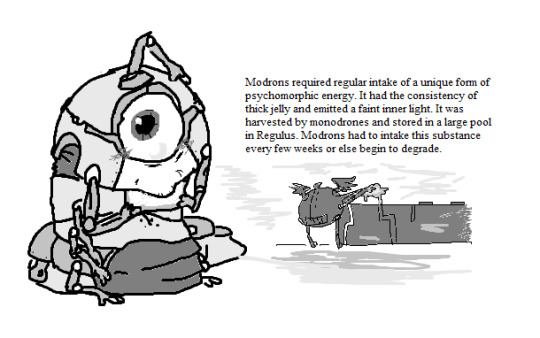

more recent modroddities (modron doodles)
12 notes
·
View notes
Text
Probably talked about this before, but for when I run spelljammer I want to reimagine Modrons as the "caretakers" of the multiverse. Or perhaps the immune system of the multiverse.
They exist within their own realm and when something causes, or tries to cause, damage to the fabric of reality they Modrons arrive and swarm around to destroy whatever is causing the problem and to set about repairing the issue.
In my mind the Modrons and the Mindflayers are ancient enemies. As Mindflayers will use Nautiloids to rip open violent gashes in the fabric of reality to pass through to other dimensions/realms.
Sometimes the Modrons intercept them - other times they can only arrive to fix the wound before "bacteria" (aka incomprehensible horrors that live in the nightmarish void between realms) can find their way through.
I figure that the Modrons are a pseudo hivemind. A strange mixture of independence but also refering to themselves as a single entity ("We are Modron.")
Beings of pure order they will work to fulfil their duties without interruption. The trouble is that they are true neutral, if someone even seems like they're going to cross through to another dimension - even by accident - the Modrons will destroy them. Not out of malice, but just because that's their job.
However they have been known to rarely interact with others. Sometimes even using other people for assistance.
Additionally it's possible to travel to other dimensions without pissing off the Modrons. Just usually on a small scale and the methods cause no damage/no lasting damage.
20 notes
·
View notes
Text

sketched my take on modrons for a campaign I'm participating in as one
7 notes
·
View notes
Text

I'm a little late with posting this, but Happy Valentine's Day!
For those who don't know, these are the 2nd edition and 1st edition versions of decaton modrons. I love the 1e versions of modrons SOOOO MUCH!!! They all look so terrible, I just adore them xD
#drawing#art#my art#digital#modron#modrons#decaton#decatons#1st edition#2nd edition#1e#2e#valentine's day#valentine#dnd#d&d#dungeons and dragons
4 notes
·
View notes
Text
After my 2 and 2/3rds playthrough of bg 3 I can finally rate it.
No Modrons.
0001 out of 1010.
2 notes
·
View notes
Text
All these untitled, random-name-generated spam accounts with default icons make me feel like I'm fighting a swarm of modrons.
The Great Modron March has begun!
#dnd#modrons#primus#mechanus#forgotten realms#lawful neutral#clockwork nirvana of mechanus#the great modron march#fighting spam
2 notes
·
View notes
Text
Pünktlich zum neuen Jahr gibt es eine neue Folge Papierdrachen!
Und passend zur neuen Jahreszahl betreten wir ein komplett neues Gebiet: das Innere des weissen Blitzes.
#papierdrachen#dungeons and dragons#podcast#tabletop#rpg#pen and paper#rollenspiel#actual play#d20#soundcloud#modrons
1 note
·
View note
Text
the most beautiful-est silliest little guys, wow
official dnd post

Modrons! I had fun practicing gradients with these. They are incredibly silly. The one on the right even has a little jeweled goatee? Soul patch?My SO mentioned that he did not think beings from a plane of pure logic should be so goofy. I only know them from Planescape Torment, though, in which their ridiculousness is kind of fun.
Anyway, I feel like a lot of the official minis are a bit lackluster, but these were at least unusual and caught my eye when I saw them.
32 notes
·
View notes
Text
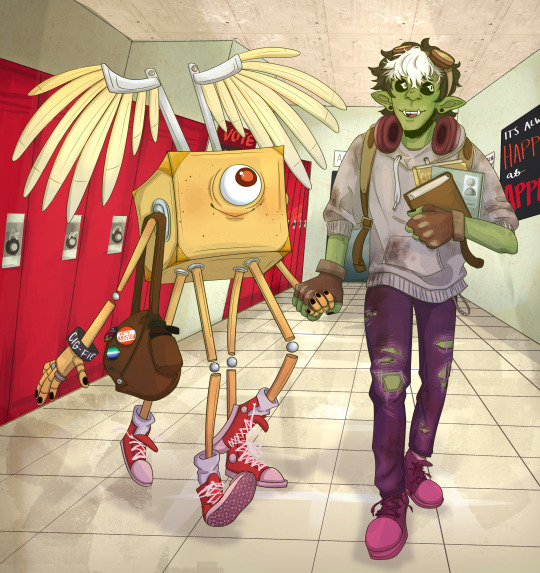
the greatest wizard of all time
ungug (gornit?) stans unite
#my art#fantasy high#fantasy high junior year#fhjy#dimension 20#d20#d20 fhjy#gorgug#gorgug thistlespring#gorgug x unit#unit x gorgug#fantasy high gorgug#fantasy high spoilers#fantasy high junior year spoilers#fhjy spoilers#dimension 20 spoilers#its gorgug keep going#gornit#ungug#drawing a modron is really hard#this is what i think unit looks like wish we had official art smh
2K notes
·
View notes
Text

My Rogue Modron character Q04RTZ, mad scientist and xaositect wizard, obsessed with a strange "spark" he found in Limbo.
60 notes
·
View notes
Text

7 notes
·
View notes
Text
Hot take But But I think Gorgug has officially dethroned Sandra Lynn as having the most bizarre love interests
#fantasy high#fhjy#fhjy spoilers#fantasy high junior year#gorgug thistlespring#sandra lynn faeth#Not to compare apples to oranges but#A werewolf a pit fiend an orc aasimar and Gilear#Vs a satyr a crystal construct a modron and Mary Ann Skuttle#Its leaning towards Gorgug
213 notes
·
View notes
Text
Letting you guys know that this is the official dnd art for what Modrons look like - for all your Gorgug x Unit pleasure

#because I had to look up what modrons look like#gorgug x unit#d20 unit#dimension 20#fantasy high#fantasy high junior year#d20#Gorgug thistlespring following in his machine fucker parents footsteps#gorgug thistlespring
153 notes
·
View notes
Text
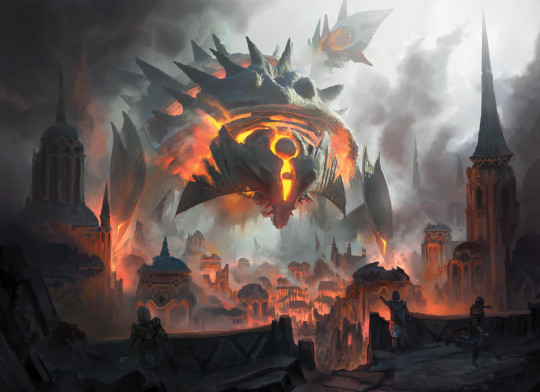

Villain: Finality 9, Arbiter of the End
For hours you and your allies have sheltered in place as the astral warships bombarded the city, feeling each impact as another block was levelled. Now you watch as the Flagship touches down, scarab like legs taller than spires unfolding from it's hull. It's going to be a bloody, brutal struggle fighting your way through the rubble and the burning streets up to the control deck, but It's your only hope of ending things without your home being razed to the ground.
The embodiment of a death sentence passed long before any of the heroes were ever born, the Marut Finality 9 and the Inevitable armada it commands serve only one purpose: to deliver violent and irrevocable endings to entities that should have died long ago.
Unfortunately for the party, whatever being(s) Finality 9 is hunting happen to reside on the same landmass as they do, and the Inevitable has no qualms levelling anything that gets in its way until the destruction of its target is confirmed. Like many creatures born from the shattered plane of order, Finality 9 and its construct legion have a very narrow set of operational directives, and "preserving life" ends up being the preview of a different order of celestial machines.
Finality 9's operations always follow the same protocol: After using divination to determine the vague location of their target Modron scouts will be sent to investigate, sending a transmission back to the ship to begin the invasion the moment they've determined the enemy's presence and threat level. After that it's bombardment and battalions in specified areas to soften up their target's defences before Finality 9 itself descends to finish the job.
Hooks:
One of Finality 9's scouts becomes attached to the party early in their adventures, following along and providing typical mascot antics until they stumble across evidence of the big bad. This starts a ticking clock for the party to find and oust this evil before the Inevitables arrive... a task the galactic forces of order were failing at for decades.
Every year the realm celebrates the festival of St. Altrin's Star, held on a night when a particular comet is viable to venerate the figure's many beneficent acts. This year however the comet is unusually bright, heralding the fact that it is not a star, but Finality 9's ship which has been circling the world for decades or even centuries waiting for the reemergence of a long dormant demi-lich which the party awoke earlier in their adventures.
The Inevitable does not warn or negotiate, and likely does not even speak the language of the lands it is razing but with some telepathy or a background in obscure astral dialects they might be able to get it to stop by presenting evidence that its target is already dead ( forcing them to do all the work) or that its actions are unlawful (which requires iron clad litigation skills and knowledge of multiple celestial law systems). If the heroes happen to have any favours with infernal deal makers or underworld bureaucrats, now would be the time to call them in.
In a desperate hour, the party must seek out finality 9's armada hovering dormant in wildspace in hopes of gaining their aid against a greater foe. Delving through the flagship in its hibernation mode will not be easy as not only are there defence systems to worry about but astral wildlife that have nested in the interior while the constructs within were in standby mode.
Art 1, Art 2
#inevitable#dnd#dungeons and dragons#d&d#ttprg#pathfinder#high level#villain#SPELLJAMMER#modron#Mechanus#warfare#disaster#end game
219 notes
·
View notes
Text
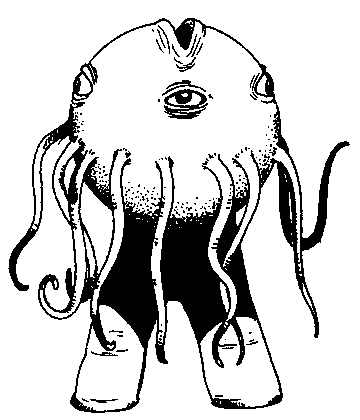
1e decaton as if YOU even care
#Moron#Become enchanted by modrons flesh machine angel freaks#I put them in my game as space cops stopping UnReality incursions#Modron#But I'll keep autocorrects moron tag#Dnd
79 notes
·
View notes
Text
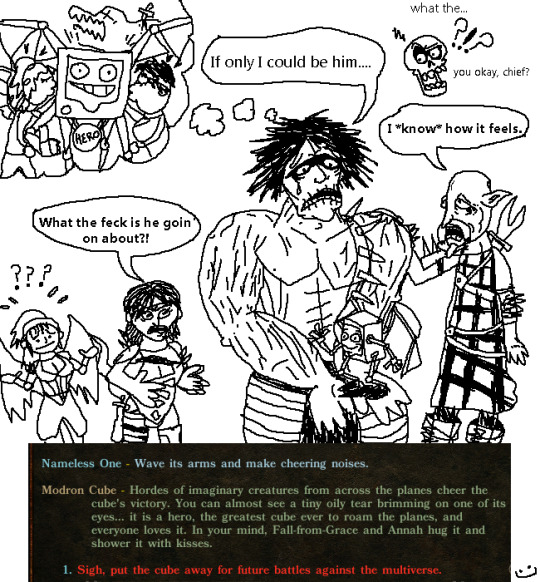
Saw this piece of writing in my playthrough of Planescape Torment and immediately felt an extremely strong urge to want to draw it.
If *only* you could be a heroic modron cube... If only....
47 notes
·
View notes